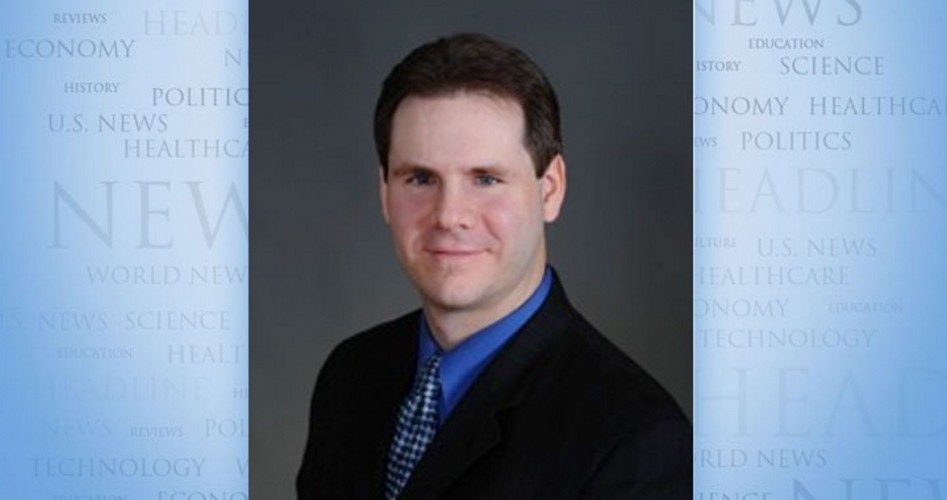
When it comes to religiosity, some American states truly do fit in to the union — the European Union, that is.
According to recent surveys, the most and least religious states are mainly where one might expect: respectively, the Bible Belt of the South, and New England and the West. A recent Gallup study, for instance, rated (in order) Mississippi, Utah, Alabama, Louisiana, Arkansas, South Carolina, Tennessee, North Carolina, Georgia, and Oklahoma as the 10 most religious states; and Vermont, New Hampshire, Maine, Massachusetts, Alaska, Oregon, Nevada, Washington, Connecticut, the District of Columbia, New York, and Rhode Island (the last three were tied for 10th place) as the least.
This is significant because authentic religiosity correlates with many other things. Just consider voting patterns, for instance. Nine of the 10 most religious states are conservative bastions that consistently vote Republican in presidential elections; the one exception is North Carolina, which, owing in large part to demographic changes, is now a Republican-leaning swing state. In contrast, 10 of the least religious states are either Democrat bastions or are close to that; the exceptions are Democratic-leaning swing state New Hampshire; and Alaska, whose rugged rural individualism breeds a conservative libertarianism. And is it surprising that these American states vote like Europeans? When it comes to faith, their residents believe like Europeans. Modern liberalism is the political arm du jour of atheism.
Another thing that correlates with atheism is lower charitable giving. As John Stossel reported in 2006, “Of the top 25 states where people give an above-average percentage of their income, all but one (Maryland) were red — conservative [and more religious] — states in the last presidential election.” And this is precisely what research would predict. As Syracuse University professor Arthur C. Brooks, who conducted a study on charity in the United States, wrote, “The number one characteristic of those who give in this country is that they practice a faith.”
And it goes beyond formal charitable giving. As Professor Brooks also found:
In 2000, people belonging to religious congregations gave 46 percent more money to family and friends than people who did not belong. In 2002, religious people were far more likely to donate blood than secularists, to give food or money to a homeless person, and even to return change mistakenly given them by a cashier.
And here’s the kicker: Brooks reports that religious people are even more likely than secularists to donate to secular charities.
Transitioning from the statistical to the anecdotal, I didn’t need studies to know that a dearth of faith begets the death of charity. I’ve experienced it.
Some years ago I spent a month traveling around and camping in Maine. Now, let me say that the Pine Tree State is an absolutely beautiful place, and I did run into a number of wonderful people there, some of whom exhibited robust charitable spirit. Having said this — and at the risk of offending many — I can fully understand why some studies rate Maine as the most unreligious state. It shows.
I’ll put this delicately: Nowhere else in America was I accosted with the brazen examples of lacking charitable spirit that I experienced in Maine. It was absolutely striking, and I say this as someone raised in New York, a state not generally known for its brotherly spirit.
In light of the above statistics and the anecdote, something is brought to mind. It is often asked, with the snide implication that its adherents are lacking, what kind of witness Christians give for Christianity; it is seldom asked what kind of witness atheists give for atheism.
Of course, it’s certainly true that atheists do a better job of living up to their world view than Christians do living up to theirs. This is only, however, because there is nothing to live up to. This isn’t meant to give offense, mind you. It’s what atheists themselves acknowledge — in so many words.
For example, when defending atheism against the point that history’s most prolific mass murderers — villains such as Joseph Stalin and Mao Tse-tung — were atheists, secularists are quick to mention that the blame for such horrors is incorrectly placed because such acts aren’t committed in atheism’s name; to cement this argument, they further point out that atheism doesn’t prescribe any kind of behavior, let alone such a barbaric variety. But this is to mention the point while missing it. Sure, atheism doesn’t prescribe anything.
And this is the problem.
Silence on moral matters would be one thing if we still lived in Eden, if man’s default were to be angelic.
But it’s not.
Man’s default is to be barbaric.
As any examination of history, or toddlers, will evidence, people naturally exhibit the Seven Deadly Sins, and the question always is how this tendency can be mitigated. In fact, this is why we have the word “civilization”: If people didn’t have to be civilized, that state of being would simply be the way things are and wouldn’t be a special designation whose opposite is barbarity.
Now, the thing about mitigation is that it requires a mitigating factor — or more than one. In the annals of man’s faults and frailties, this has tended to be two things. One is government coercion. The other is that factor that diminishes the necessity for government coercion to the extent to which it is proper and practiced: religion.
The best of religions not only provide a higher moral standard, but also the highest deterrent to bad behavior: the threat of eternal punishment.
Of course, this is where atheists usually scoff and retort, “What kind of a person are you if you only do the right thing because you fear the whip?” Answer: a quite morally immature person. But it is philosophical immaturity to not recognize that moral immaturity is a reality.
It’s seldom pointed out that you could use the same scoffing argument to justify the elimination of police, judges, and prisons. But the fact is that people who only act rightly for fear of punishment walk among us. Famed psychologist Erik Erikson acknowledged this when defining the stage of “psychosocial development” in which a child only knows something is wrong if he gets punished for it. And, unfortunately, some people remain morally stunted and never ascend beyond that stage.
Theological circles acknowledge the same phenomenon when speaking of “perfect” and “imperfect” contrition. The former is when you’re sorry for your sins because you violated the good; the latter is when you’re only sorry because you fear punishment. And, of course, perfect contrition is ideal, but what of those so morally immature that they’re incapable of this ideal? A wise person understands that such people will always exist and must be deterred. Hence the value of not just love of God — but also fear of God.
Yet the main problem with the atheist “just do the right thing” argument is that “right” is not a concept correlative to atheism. After all, if God exists and has created a moral standard called “Truth,” then that standard exists apart from man and thus is transcendent; it is an objective reality — it is real. But if God doesn’t exist, then what we call right and wrong is merely man’s preference. Think about it: If we found that the vast majority of the world loved chocolate and hated vanilla, would we label vanilla “wrong” or “evil”? No, we would simply recognize it as a matter of taste. But, then how does it make any sense to label murder wrong if the only reason we do so is that most of the world prefers we not kill others in a way labeled “unjust”? If it’s all a matter of collective preference, then the hard, cold reality is that murder belongs in the same category as flavor: taste.
In other words, the concept of “right and wrong” is incomprehensible under a world view that only allows for the material, in the same way that “material” would be incomprehensible under a world view that only allowed for the spiritual. Thus, while atheists can be and sometimes are nice people, atheism is philosophical dysfunction that, when embraced en masse, leads to civilization-wide moral dysfunction. And since morality lies at the heart of everything, atheism also begets political and social dysfunction, such as the one prevalent in our time: liberalism.
Now, perhaps, it’s easier to understand why George Washington warned in his farewell address, “Let us with caution indulge the supposition that morality can be maintained without religion. Whatever may be conceded to the influence of refined education on minds of peculiar structure, reason and experience both forbid us to expect that national morality can prevail in exclusion of religious principle.”
Words to live by — coast to coast.


